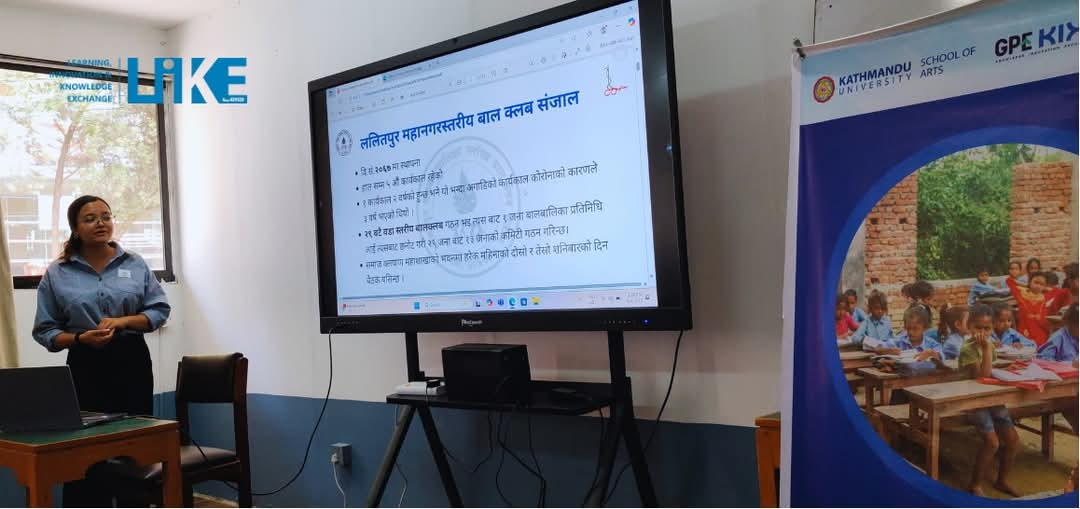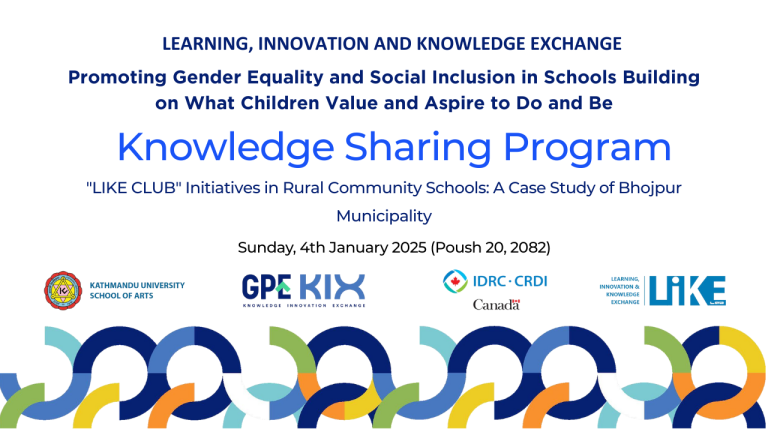
KATHMANDU, NEPAL, JUNE 4th, 2025 – As part of Learning Session Series, the Learning, Innovation and Knowledge Exchange (LIKE) Lab, Kathmandu University School of Arts, hosted a session on “Child Club Networks in Lalitpur Metropolitan City” at KUSOA’s Seminar Hall, Hattiban. The session featured Ms. Yusha Shakya, former President of the Lalitpur Metropolitan Child Club Network, who shared her experiences and insights from her two-year leadership journey working with children and youth across Lalitpur.
The event was facilitated by LIKE Lab intern Mr. Utkrishta Sharma, who welcomed participants and introduced Ms. Shakya’s contributions in the field of child rights, youth-led activism, and environmental initiatives. Currently an executive member at Paleswan Nepal, Ms. Shakya continues to engage in advocacy and capacity-building efforts for children and young people.
Key Highlights from the Session
- Understanding Child Clubs: Ms. Shakya described child clubs as “balbalika ko samuha” — safe and inclusive platforms formed by and for children to voice their concerns, uphold their rights, and contribute meaningfully to their communities.
- Structure and Operations: The Lalitpur Metropolitan Child Club Network, established in 2067 B.S., consists of 13 members representing all 29 wards of the Metropolitan City, with each leadership cycle lasting two years.
Impactful Initiatives:
- Organizing municipal-level events like quiz contests, art competitions on National Children’s Day, and mental health awareness programs.
- Environmental campaigns such as the Green Chakra initiative.
- Strengthening civic engagement by connecting children with local ward representatives, police, and community leaders.
Partnerships and Outreach: The network collaborates with schools and institutions such as Rato Bangala School, CBR Patan, and Plan International to amplify its reach and resources.
Skill Development: Ms. Shakya emphasized how active participation in child clubs nurtures leadership, decision-making, and public speaking skills among children — skills that many members carry into broader youth-led initiatives after completing their terms.
Challenges Identified:
- Parental hesitation due to concerns over academic distraction.
- Difficulty sustaining youth motivation, especially during exam periods or in the absence of incentives.
In the interactive discussion that followed, Ms. Shakya elaborated on coordination mechanisms across 29 ward-level clubs, the balance between school and club responsibilities, and outreach strategies that include direct contact, school visits, and mobile communications. She stressed the importance of gradually handing over leadership responsibilities to children to build ownership and confidence over time.



